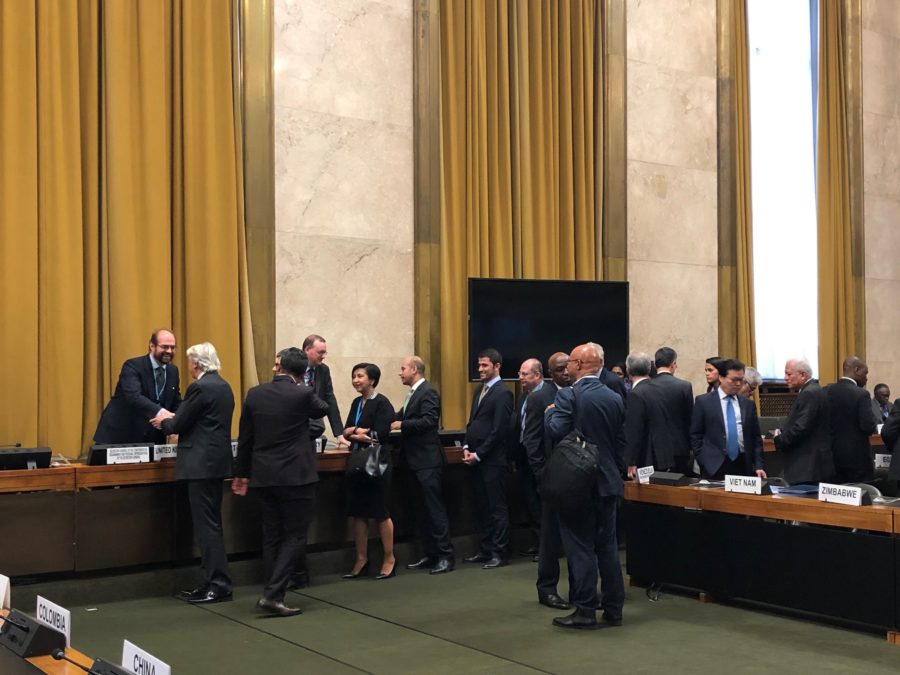22nd March 2019 Geneva, Switzerland
Disarmament blog: Looking back at the UK’s Conference on Disarmament Presidency

Four weeks ago, the UK assumed the rotating Presidency of the Conference on Disarmament. Today, we hand it over, with our best wishes, to the US.
It’s been an intense four weeks. During the High Level Segment we heard from 30 Ministers over five plenary meetings. We presided over eight working formal and informal plenary meetings, and held consultations with all three regional groups. With the UN Archives, we put together an exhibition looking back at 100 years of disarmament diplomacy in Geneva and 40 years of the CD. We hosted a seminar with UNIDIR and a Library Talk with the UN Office in Geneva Library looking at the past, present and future of disarmament diplomacy. As President of the CD I spoke at an International Women’s Day event for disarmament diplomats hosted by the Australian Mission, and I received the credentials of the new Peruvian Ambassador.
Above all, though, our focus was on trying to find a way of structuring the CD’s work this year, building on the work that was done in 2018, in a way that balances the priorities and concerns of all.
Our idea was to follow, and improve on, the model first adopted last year of setting up Subsidiary Bodies. Our proposal established four Subsidiary Bodies, one for each of the ‘core items’ of CD business (nuclear disarmament, fissile material, outer space, and ‘negative security assurances’). It also appointed two ‘Special Coordinators’: one with a cross-cutting mandate to examine the impact of new technologies and emerging issues on the CD’s agenda; and the other with a more inward-looking mandate to consult members on how to improve the functioning of the Conference and on the expansion of its membership.
We consulted widely, and we refined our proposals to take into account feedback from all delegations. Most countries recognised that it was a compromise, and that all the proposal committed them to was discussions. There was overwhelming agreement that this represented the best way forward in difficult circumstances. But in the end, six delegations – Russia, Cuba, Syria, Venezuela, Iran, and Turkey – refused to endorse the proposal. In the absence of consensus, it failed.
Why did those six block it? Some of them had concerns about the second Special Coordinator’s mandate, which they felt could be used to ‘politicise’ the CD. We did what we could to assure them they had nothing to fear, but to no avail. (Ironically, two of them also rejected Ambassadors nominated to coordinate the Subsidiary Bodies – for political reasons.) Russia though decided it was not interested in the CD getting back to work except on its terms – essentially elevating its own priorities on outer space and the use of chemical and biological weapons by terrorists to the same level as the whole nuclear disarmament agenda – which had no support from any other delegation.
The result is that the CD has lost the momentum it began to build up last year. A third of the way through the 2019 session, there’s no plan in place for conducting detailed discussions on the core issues. I’m sure the political fallout will dominate the rest of the session. But I hope the conversations we started will continue, and that together we can find a way of reviving this institution and its important work.
I began my last blog looking back to when the UK last held the CD Presidency, in 2008. As things stand today, the next time would be in January 2030. I wonder what the world, and the disarmament machinery, will look like then?